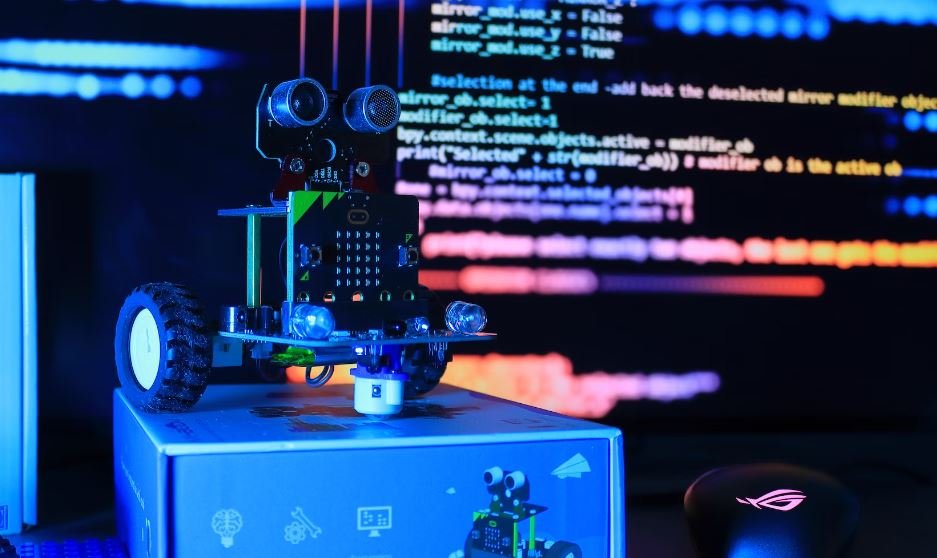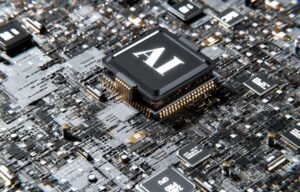AI and Software Engineering
Artificial Intelligence (AI) is revolutionizing various industries, and software engineering is no exception. With its ability to process massive amounts of data and learn from patterns, AI is transforming the way software is developed, tested, and deployed. In this article, we explore the impact of AI on software engineering and how it is shaping the future of technology.
Key Takeaways:
- AI is transforming software engineering through automation and intelligent decision-making.
- AI can analyze code and identify bugs, improving software quality and reducing development time.
- Machine learning algorithms help optimize software development processes.
- Natural Language Processing (NLP) enables better communication between developers and AI systems.
**Software engineering** is a complex process that involves designing, developing, testing, and maintaining software systems. Traditionally, these tasks were performed by human developers, resulting in time-consuming and error-prone processes. However, **AI is changing the game** by automating various aspects of software engineering and introducing intelligent decision-making capabilities.
One of the significant impacts of **AI** on software engineering is its ability to **analyze code**. By processing vast amounts of code repositories, AI algorithms can identify **patterns, common errors**, and **best practices**. This analysis can **improve software quality** by reducing the number of bugs and vulnerabilities. Moreover, AI can automatically generate **optimized and error-free code**, speeding up the development process.
**Machine learning** algorithms play a crucial role in optimizing software development processes. AI algorithms can learn from past projects and identify **patterns**, enabling developers to make more informed decisions. For example, machine learning algorithms can **predict** the time and resources required for a specific task, enabling better project management. By analyzing historical data, AI can also recommend **coding standards** and **design patterns** that improve the overall quality of the software.
**Natural Language Processing (NLP)**, a part of AI, allows better communication between developers and AI systems. By understanding **human language**, AI systems can interpret **requirements** and **user feedback** more accurately. Developers can now **interact** with AI-powered assistants to ask complex questions or seek advice on coding techniques. This enhanced communication leads to better collaboration and faster problem-solving, ultimately resulting in more efficient software development.
The Impact of AI on Software Engineering
AI.AI.AI.AI.AI.AI.AI.AI.AI.AI.AI.AI.AI.AI.AI.AI.AI.AI.AI.AI.AI.AI.AI.
- Improved Software Quality: AI algorithms analyze code and identify bugs, leading to higher-quality software.
- Reduced Development Time: By automating tasks and generating optimized code, AI speeds up the software development process.
- Enhanced Productivity: AI streamlines various software engineering tasks, allowing developers to focus on more critical aspects.
**Table 1: Comparison of Traditional and AI-Driven Software Engineering**
| | Traditional Software Engineering | AI-Driven Software Engineering |
|——————-|———————————-|——————————-|
| Code Analysis | Manual and time-consuming | Automated and efficient |
| Bug Detection | Human-dependent | AI-driven and accurate |
| Software Testing | Manual testing | AI-powered automated testing |
| Decision-Making | Human judgment | AI-enabled intelligent decision-making |
The adoption of AI in software engineering is growing rapidly. Organizations are leveraging AI-powered tools and technologies to gain a competitive edge in the market. However, it is essential to strike a balance between human expertise and AI capabilities. The collaboration between humans and AI systems can lead to innovative solutions and improved software engineering practices, ultimately shaping the future of technology. With further advancements in AI, the possibilities for software engineering are endless.
Conclusion
By embracing AI, software engineering stands to benefit from automation, improved software quality, reduced development time, and enhanced collaboration. With AI algorithms analyzing code, optimizing processes, and aiding in decision-making, software engineers can focus on the creative aspects of their work. As AI continues to advance, the field of software engineering will undoubtedly experience further transformations, revolutionizing the way software is developed and expanding the possibilities of technology.

Common Misconceptions
Misconception 1: AI replaces Software Engineering
One common misconception people have about AI and Software Engineering is that AI will replace the need for software engineers. However, this is not entirely true.
- AI complements software engineering, but does not replace it
- Software engineers are still needed to design, build, and maintain the AI systems
- AI enhances the capabilities of software engineering, but does not eliminate the need for human expertise
Misconception 2: AI can solve any problem
Another misconception is that AI can solve any problem thrown at it. While AI has made significant advancements, it is still limited in its capabilities.
- AI is only as good as the data it is trained on, and may not perform well on unfamiliar or insufficient data
- AI may struggle with complex decision-making or understanding context in certain situations
- AI is not a universal solution and may require human intervention for certain problems
Misconception 3: AI is infallible
There is a misconception that AI systems are infallible and always provide accurate results. However, like any technology, AI is prone to errors and biases.
- AI systems can produce biased or unfair outcomes if the training data is biased or if the algorithms have inherent biases
- Errors in data labeling or model training can lead to incorrect predictions or decisions
- Regular monitoring, debugging, and fine-tuning are necessary to ensure AI systems are reliable and fair
Misconception 4: AI can replace human creativity
Some people believe that AI can replace human creativity in software engineering tasks. While AI can assist and even generate creative solutions, it cannot fully replicate human creativity.
- AI lacks the ability to experience emotions, intuition, and subjective judgment, which are integral to human creativity
- Human creativity often involves non-linear thinking and the ability to connect disparate ideas, which AI struggles with
- AI can be a valuable tool to augment human creativity, but it cannot replace it entirely
Misconception 5: AI will lead to widespread unemployment for software engineers
One common fear is that the widespread adoption of AI will lead to a significant decrease in employment opportunities for software engineers. However, this is an unfounded misconception.
- AI technology requires skilled software engineers to develop, deploy, and maintain the systems
- The demand for software engineers may shift as AI becomes more prevalent, but new opportunities will arise
- Software engineers can specialize in AI-related fields and contribute to the development and refinement of AI technology

The Role of AI in Software Engineering
Artificial Intelligence (AI) has revolutionized many industries, and software engineering is no exception. This table presents some noteworthy applications of AI in software engineering:
| Application | Description |
|---|---|
| Automated Code Generation | AI can generate code snippets or even entire programs, saving time and reducing human errors. |
| Bug Detection | Using machine learning algorithms, AI can detect and fix bugs in software, enhancing its reliability. |
| Code Refactoring | AI can automatically improve the structure and efficiency of existing codebases, enhancing maintainability. |
| Requirement Analysis | By analyzing user needs, AI can help identify and prioritize software requirements. |
AI’s Impact on Software Testing
The use of AI has drastically transformed the field of software testing. This table outlines several ways in which AI influences software testing:
| Application | Description |
|---|---|
| Automated Test Generation | AI can automatically generate test cases, reducing the manual effort required for testing. |
| Defect Localization | Using AI techniques, software defects can be accurately identified and localized, speeding up the debugging process. |
| Test Data Generation | AI algorithms can generate diverse and realistic test data, ensuring comprehensive test coverage. |
| Test Oracles | AI can predict expected outputs based on given inputs, assisting in test evaluation and validation. |
The Marriage of AI and Software Maintenance
Efficient software maintenance is critical for software longevity and sustainability. This table highlights AI’s impact on software maintenance:
| Application | Description |
|---|---|
| Automated Bug Triage | AI algorithms can prioritize and assign bug reports to developers based on historical data and characteristics. |
| Code Documentation Generation | AI can automatically generate code documentation, easing the burden on developers and promoting code understanding. |
| Code Clone Detection | Using AI techniques, code clones can be detected, allowing for more effective code reuse and maintenance. |
| Anomaly Detection | AI can detect abnormal behavior in software, aiding in the identification of potential bugs or security vulnerabilities. |
AI-Driven Project Management
AI technologies have introduced significant improvements in software project management and planning. Consider the following applications:
| Application | Description |
|---|---|
| Effort Estimation | AI can predict and estimate project effort based on historical data, aiding in resource allocation. |
| Risk Identification | Using AI algorithms, project risks can be identified and assessed, allowing for mitigation strategies to be implemented. |
| Task Scheduling | Using AI-driven scheduling techniques, project tasks can be optimally allocated and sequenced, improving overall efficiency. |
| Team Composition | AI can assist in selecting a suitable team based on their skills, expertise, and compatibility. |
Ethics and Accountability in AI Usage
AI technologies in software engineering also raise ethical concerns and accountability considerations. This table provides some insights:
| Consideration | Description |
|---|---|
| Bias Detection and Mitigation | AI can identify and mitigate biases in software systems, ensuring fairness and equal treatment. |
| Privacy Protection | AI can be leveraged to protect user privacy and ensure compliance with data protection regulations. |
| Transparency and Explainability | AI models and decisions can be made transparent to increase user trust and facilitate system explanation. |
| Accountability Frameworks | Establishing clear accountability frameworks ensures responsible AI usage and mitigates potential risks. |
AI-Enabled Software Security
Software security is crucial to protect sensitive data and systems from malicious activities. Explore the interaction between AI and software security:
| Application | Description |
|---|---|
| Anomaly Detection | AI can detect deviations from normal behavior, helping identify potential security breaches or attacks. |
| Intrusion Detection | Using AI-powered systems, abnormal network activities can be detected and prevented, preserving system integrity. |
| Malware Recognition | AI algorithms can identify and classify malware, enabling proactive detection and protection. |
| Vulnerability Analysis | AI techniques can be employed to identify software vulnerabilities and suggest mitigation strategies. |
The Future of AI in Software Engineering
The use of AI in software engineering is continually evolving, presenting exciting possibilities for the future. Consider the following future prospects:
| Potential | Description |
|---|---|
| Autonomous Software Development | AI may enable the development of software systems with minimal human intervention, accelerating the development process. |
| Self-Healing Software | AI can empower software systems to automatically identify and fix issues without human intervention, reducing downtime. |
| Natural Language Programming | AI advancements may enable programming in natural language, making software development more accessible to non-programmers. |
| Continuous Learning Systems | AI-driven systems can dynamically adapt and learn from feedback, improving performance and maintaining relevance. |
AI’s Influence on Software Quality Assurance
The incorporation of AI techniques in software quality assurance processes has revolutionized the field. Explore the impact of AI on software QA:
| Application | Description |
|---|---|
| Automated Test Execution | AI can execute test cases automatically, saving time and resources while ensuring comprehensive testing coverage. |
| Defect Prediction | AI algorithms can predict areas of potential defects, allowing for targeted testing efforts in critical areas. |
| Test Prioritization | AI can intelligently prioritize test cases based on the likelihood of uncovering defects, optimizing testing efficiency. |
| Performance Testing | Using AI techniques, systems can automatically identify and address performance bottlenecks, improving software performance. |
AI-Assisted Software Design
AI tools have introduced new possibilities in software design and architecture creation. Consider the influence of AI on software design:
| Application | Description |
|---|---|
| Automated Design Generation | AI can generate design alternatives based on specified requirements, assisting designers in exploring multiple options. |
| UI/UX Design Optimization | Using AI techniques, user interfaces and user experiences can be optimized based on user preferences and feedback. |
| Design Pattern Detection | AI can analyze existing designs to identify and suggest appropriate design patterns for improved software architecture. |
| Domain-Specific Language Design | AI can aid in designing domain-specific languages tailored to specific software engineering needs and requirements. |
AI and software engineering have developed a symbiotic relationship, each reinforcing the other’s growth and potential. From automated code generation to AI-assisted software design and beyond, the integration of AI technologies offers immense opportunities for efficiency, reliability, and innovation. As AI continues to advance, software engineering will undoubtedly witness its transformative power, shaping the future of the discipline.
AI and Software Engineering
Frequently Asked Questions
What is AI?
How is AI related to software engineering?
What are the benefits of integrating AI into software engineering?
What are some common AI techniques used in software engineering?
Is AI replacing software engineering jobs?
What are the ethical considerations in AI development for software engineering?
How can software engineers get started with AI?
What are some potential challenges when integrating AI into software engineering projects?
What are the future trends in AI and software engineering?





